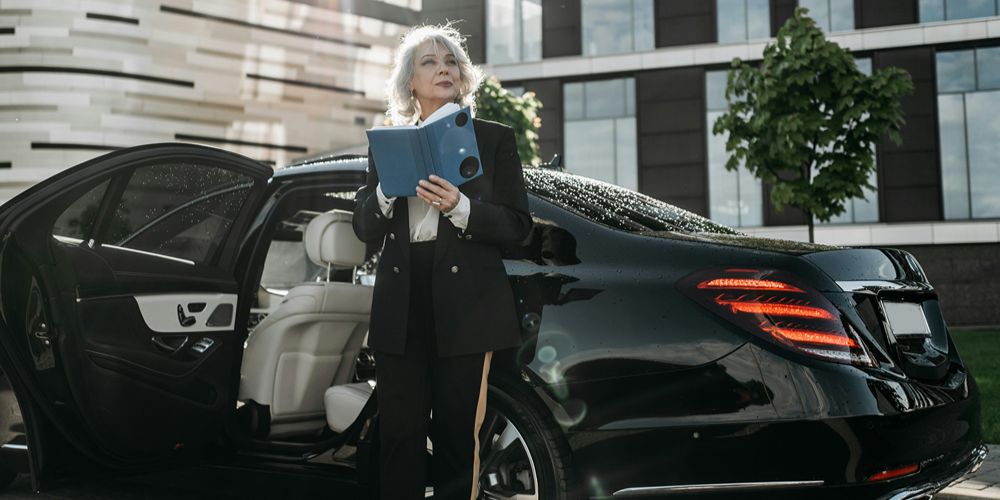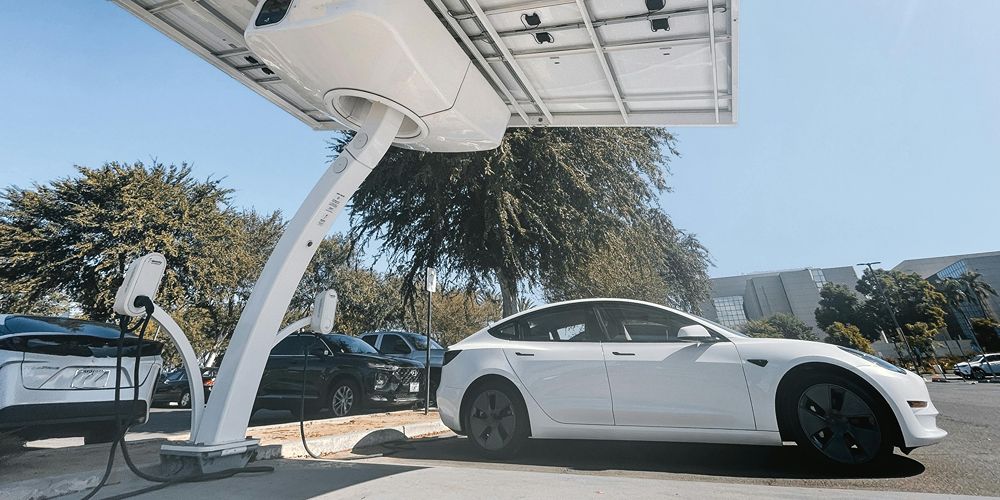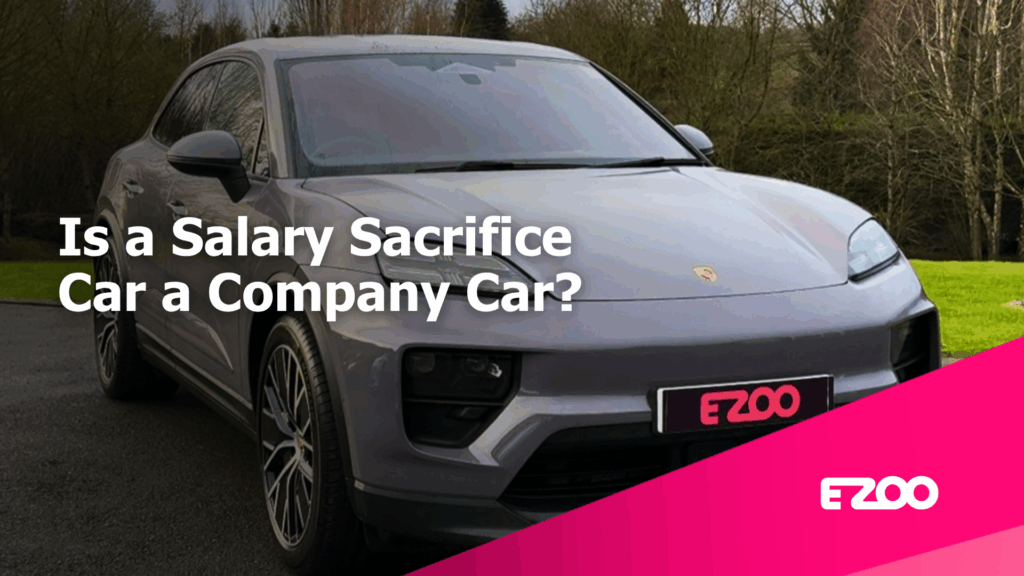With the growing popularity of electric car salary sacrifice schemes across the UK, many employers and employees are asking a simple but important question: Is a salary sacrifice car a company car?
The answer isn’t quite black and white.
While a salary sacrifice car shares some characteristics with a traditional company car, there are key differences in how it’s taxed, who has access to it, and how it’s treated under employment and benefit-in-kind rules.
What Is a Company Car?
A traditional company car is a vehicle provided by an employer for business and sometimes personal use. The employer usually pays for the vehicle, fuel, servicing, insurance, and sometimes even charging (in the case of EVs).
Company cars remain a company-owned asset and are treated as a benefit-in-kind (BiK) if the employee uses them for personal journeys, including commuting.

What does BiK mean?
The BiK value determines how much the employee pays in tax for the benefit of having access to the car. Petrol and diesel vehicles are taxed at much higher BiK rates than electric vehicles – making EVs significantly more attractive for both employer and employee.
What Is a Salary Sacrifice Car?
A salary sacrifice car is an electric vehicle offered to employees through a salary sacrifice scheme with their employer. The employee agrees to give up a portion of their gross salary (before tax and National Insurance) in exchange for the use of a fully maintained, insured, EV.
The key here is that the employee doesn’t own the vehicle – but nor does the employer in the traditional sense. Instead, the employer leases the car, and the employee accesses the vehicle via the salary sacrifice arrangement.
It’s essentially a “company car in disguise” – with some unique advantages.
So, Is It a Company Car? Technically, Yes – But Functionally Different
From HMRC’s perspective, a salary sacrifice car is treated as a company car for tax purposes, because:
- The employer provides the car (via a lease)
- It’s offered as part of the employee’s remuneration package
- The employee gets personal use of the vehicle (including commuting)
However, the key difference is who pays. Instead of the employer covering the cost as an additional benefit, the employee funds it through salary exchange, unlocking big tax advantages in the process.
Tax Treatment of Salary Sacrifice Cars
Here’s a breakdown of how salary sacrifice vehicles are treated for tax:
- Benefit-in-Kind Tax: The employee pays BiK tax on the vehicle’s value. Since EVs are rated at just 3%, this is minimal.
- Income Tax and National Insurance Savings: Because the lease cost is deducted from gross salary, employees pay less income tax and National Insurance.
- Employer NI Savings: Employers also save on National Insurance Contributions because the employee’s taxable salary is lower.
Overall, it’s a tax-efficient, low-cost way to drive a new car – cheaper than a personal lease or outright purchase.

Ownership and Responsibility
One of the most important differences between a traditional company car and a salary sacrifice car is how much control the employee has. With salary sacrifice schemes:
- The employee chooses the car – make, model, colour, extras, and mileage cap
- The vehicle is leased in the employer’s name but used exclusively by the employee
- All costs are bundled: insurance, servicing, maintenance, tyres, MOT, breakdown cover, and road tax
- At the end of the agreement, the car is returned to the provider.
In traditional company car schemes, the company usually assigns a vehicle for business needs, with fewer personalisation options and potentially more business-related mileage expectations.
What Happens If the Employee Leaves or Goes on Maternity/Paternity Leave?
Good providers include protections for unexpected life events. This might include:
- Early termination cover for redundancy or resignation
- Options to pause or defer payments during parental leave
- Flexibility to transfer the agreement to another employee where appropriate
This is another way salary sacrifice schemes differ from rigid company car programs – they’re designed to support employees’ changing circumstances.

Is Salary Sacrifice Worth It for Employers?
Absolutely. Offering EV salary sacrifice cars is a powerful employee benefit that doesn’t cost the company money (and might even save on NI). It’s great for:
- Attracting and retaining talent
- Supporting green fleet policies and ESG goals
- Offering a “perk” without increasing payroll spend
- Reducing scope 1 and scope 3 emissions
Better yet, when partnered with a provider like EZOO, all the admin – insurance, tax, contracts, and car handover – is handled on your behalf. No stress, no hassle.
You can learn more about salary sacrifice for employers here.
Key Differences Between a Salary Sacrifice Car and a Traditional Company Car
| Feature | Salary Sacrifice Car | Traditional Company Car |
| Tax Treatment | BiK applies | BiK applies |
| Who Pays? | Employee via gross salary | Employer |
| Vehicle Choice | Employee chooses | Often employer decides |
| Ownership | Leased via employer | Owned/leased by employer |
| Personal Use | Allowed | Allowed (but sometimes limited) |
| Insurance & Servicing | Included | Usually covered by employer |
| Cost to Employee | Tax-efficient, low monthly cost | Higher BiK (especially for petrol/diesel) |
Enjoy a Simpler Way to Reward Your Team
So, is a salary sacrifice car a company car? Technically yes – but with a twist. It falls under the definition of a company car for tax purposes, but functionally feels like a personal lease with all the benefits of company car simplicity and zero ownership hassle.
With EZOO, salary sacrifice isn’t just a way to drive electric – it’s a smarter, simpler, greener way to reward your team.
Frequently Asked Questions
Is a salary sacrifice car classed as a company car for tax purposes?
Yes. HMRC treats salary sacrifice cars as company cars. Employees pay benefit-in-kind tax - though it’s incredibly low for EVs.
Who owns a salary sacrifice car?
The car is leased by the employer from a provider. The employee has exclusive use during the agreement but doesn’t own the vehicle.
Can employees use a salary sacrifice car for personal use?
Yes, absolutely. Salary sacrifice cars are designed for personal use, including commuting.
Do salary sacrifice cars affect mortgage applications?
Potentially. Since it reduces gross salary, lenders may view it as a financial commitment. However, it’s often treated like any other deduction.
Is maintenance and insurance included in a salary sacrifice scheme?
Yes. With providers like EZOO, the monthly fee includes insurance, maintenance, servicing, breakdown cover, tyres, and road tax - all bundled for ease.
Related guide: Why EV Salary Sacrifice is an Easy Win for Your Business.

